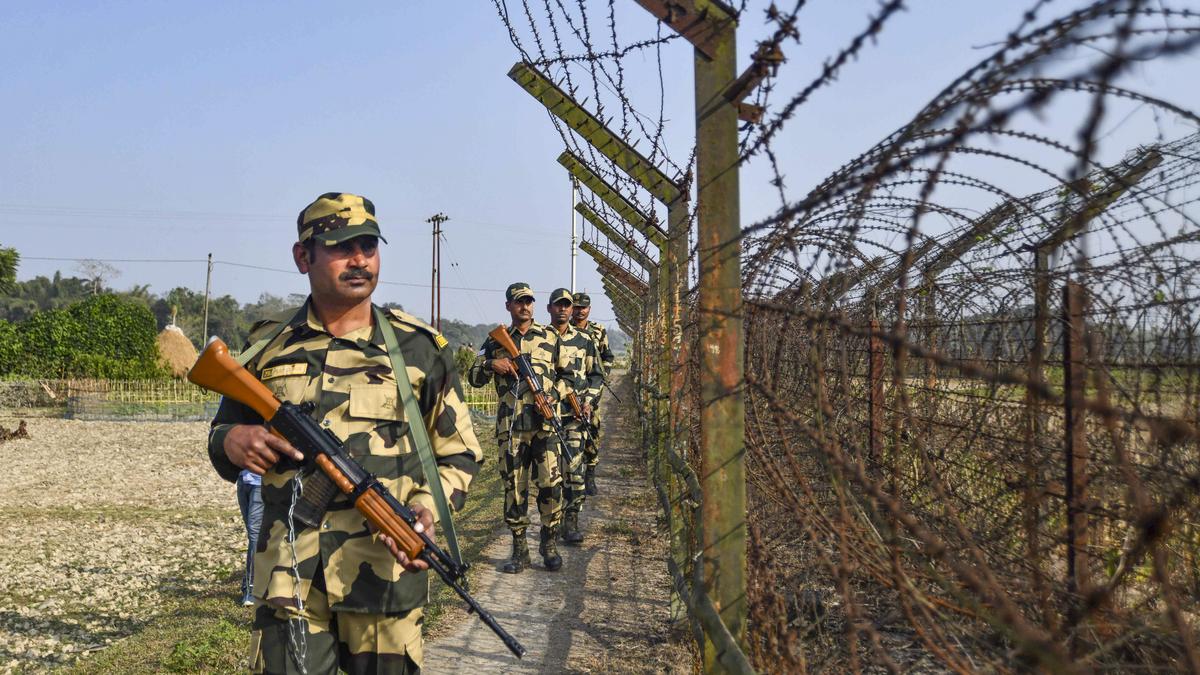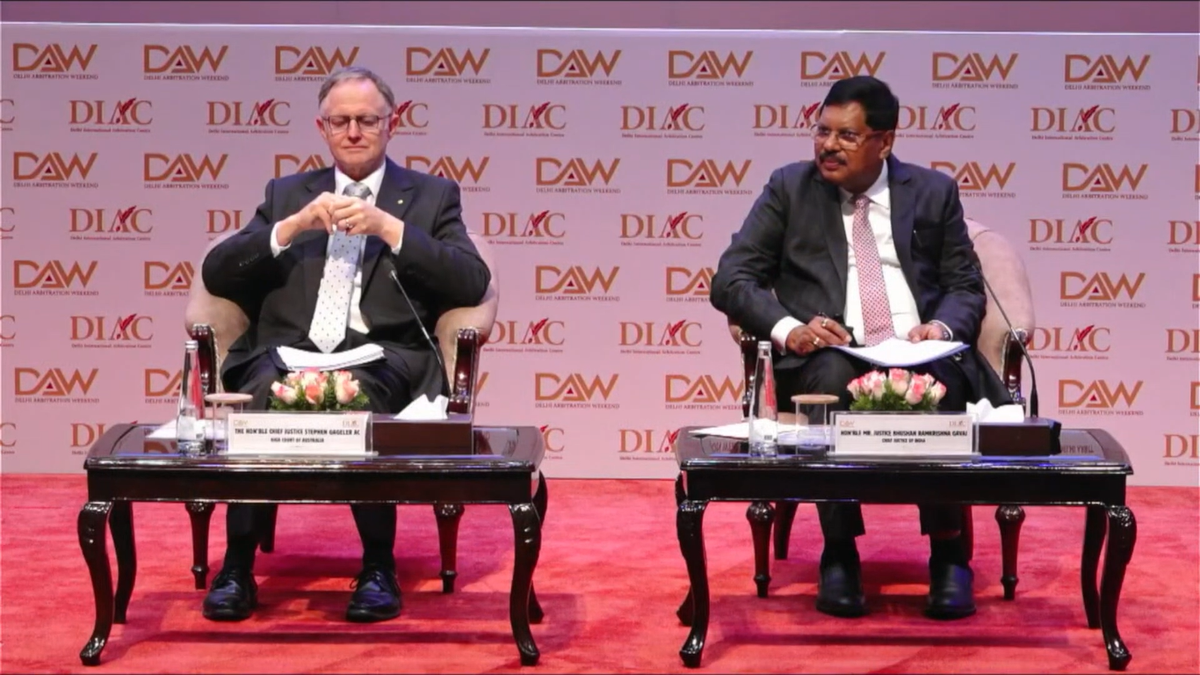In Kotakonda village, about 20 km from Telangana’s Narayanpet town, the steady hum of a sewing machine once defined Seelam Chandrakala’s life. She stitched clothes for a meagre income while her husband’s wages as a mason barely kept the family afloat. With a young son in school and their only piece of land tilled by her brother-in-law, survival left little room for dreams.
In Narayanpet district, known for its handloom sarees but also its poverty, women are expected to limit themselves to tailoring, farm labour or odd jobs. Few would dare to imagine stepping into traditional male bastions. But six months ago, Chandrakala and a handful of self-help group (SHG) members did just that — rewriting the script for themselves and for the district.
They started working at a fuel station — Telangana’s first women-run petrol bunk. At first, customers were openly skeptical. Some would ask mockingly, “Do you really manage this petrol pump?” while others declared that the women wouldn’t last long, since it was “a man’s job”. But what began in doubt has since turned into a story of defiance and success. Today, six months later, Chandrakala, 31, manages the Narayanpet filling station that has not only survived but thrived.

Her personal journey is proof of what determination and collective strength can achieve. Her husband continues his masonry work, earning between ₹15,000 and ₹20,000 a month, while she takes home ₹18,000 salary as fuel station manager. Together, they rent a modest home close to the pump, allowing their son, now in class 6, to continue education without interruption. “With this job, we are leading a comfortable life,” she says.
The fuel station itself is a landmark achievement. Set up by the Zilla Mahila Samakhya (ZMS), it is the first in the country to be managed by a women’s federation. Located at Singaram X Roads in Narayanpet, about 160 km from State capital Hyderabad, the ZMS petrol pump is a point of curiosity and pride today. Inaugurated by Chief Minister A. Revanth Reddy on February 21 this year, it has already recorded a profit of ₹13.82 lakh in its first six months of operations.
The idea took root last year when then Collector Koya Sree Harsha attended a ZMS Executive Council meeting. “He asked if we were running any big units. When we said no, he suggested a petrol pump. We readily agreed. Later, he asked if government land was available. We proposed the site beside the DRDA office. That is how we were entrusted with the job of running the fuel station,” Chandrakala recalls.

At that time, she was serving as the president of ZMS, a position she had held for three years after joining a self-help group under the government’s Society for Elimination of Rural Poverty (SERP) in 2013 and steadily rising through the federation’s ranks.
For her, the task was not only about running a business but proving a point too. “To those who ridiculed us, we wanted to show that we could succeed. Today we are managing the petrol pump well and also creating employment for other SHG women,” she says.
Among those women is G. Soni, 28, sporting a sky-blue and yellow uniform coat as she briskly operates the dispenser, fills fuel tanks, flashes the QR code and moves on to the next customer with practiced efficiency. Just a year ago, she was working on a farmland in Vallampally village near Narayanpet as a daily wage labourer, earning ₹400 to ₹500 per day.
Coming from a Dalit family of farmhands, with her father forced to migrate to Mumbai for better livelihood opportunities, Soni’s life has been one of unending struggle. “Now my fortune has changed. I have a steady job and a decent income in this small town,” she says.
Another is Ch. Sunitha of Pallerla village, who once slogged as a private school teacher for a paltry salary of ₹5,000. “I used to work long hours for almost nothing. Now I earn ₹13,000 a month. I actually enjoy interacting with different kinds of people at the fuel station,” says the 24-year-old hailing from the Backward Classes community holding an Intermediate degree. Married to a small farmer with one hectare of land and with two children in classes 3 and 4, Sunitha’s job at the fuel station has given her family financial breathing space and new confidence.
Power of collective strength
What strengthens their story is the collective engine behind it. The ZMS federation itself is massive, consisting of 8,196 self-help groups with over 91,000 women members. The petrol station project was set up with an investment of ₹1.3 crore, including ₹15 lakh for infrastructure, under a 20-year lease agreement with Bharat Petroleum Corporation Limited (BPCL) at ₹10,000 per month.
Before the women took charge, seven senior members were trained as managers and sales staff at established bunks in Jadcherla (Mahabubnagar district) and Shadnagar (Rangareddy district), ensuring they would step in prepared. Performance is reviewed every 15 days by the District Collector, a system that not only builds confidence among the women but also guarantees transparency and accountability.

Narayanpet DRDO Mogulappa and petrol station manager Seelam Chandrakala with the staff members. | Photo Credit: RAMAKRISHNA G.
The fuel station has 11 employees, seven of them women from SHGs. To keep operations running round-the-clock, four men have been hired for night shifts. With a population of 41,752 as per the 2011 Census, Narayanpet town itself has five other filling stations, but none with the same impact or symbolism as this one.
“We are selling around 4,000 litres of petrol and 6,000 litres of diesel every day. Six women working as sales staff earn ₹13,200 per month, while I, as the manager, receive ₹18,000. Salaries are paid by the federation,” says Chandrakala. A first-generation graduate with a BA through an open university, she adds that financial constraints had kept her from attending regular college.
For the women’s collective, the petrol bunk is more than a livelihood source; it has become a symbol of recognition. “With this station, our Narayanpet ZMS has gained visibility and respect. People from different places are calling us after seeing our work in the media,” says S. Arundathi, the federation’s president, who runs a ladies’ corner. She hopes to add more business units at the filling station with SERP’s support.
District Rural Development Officer Mogulappa says the Narayanpet experiment is serving as a model, and two more pumps are coming up — one at Kosgi and another at Makthal. “We also plan to establish one-megawatt solar units at both sites. Since the Kosgi Mandal Mahila Samakhya already has seven acres, it will be easy to set up both the solar unit and the petrol bunk,” he explains.
Expanding horizons
Similar initiatives are beginning to take root elsewhere. In Sangareddy, a partnership with Indian Oil Corporation Limited (IOCL) has enabled the local ZMS to earn ₹4-5 lakh per month. Encouraged by such successes, SERP now plans to roll out fuel stations and EV charging facilities across rural districts under the State’s flagship Indira Mahila Shakti (IMS) scheme.

Employees of the petrol bunk dispensing fuel. | Photo Credit: RAMAKRISHNA G.
The women’s groups represent “an amazing network of the organised poor”, unlike anything seen elsewhere, says SERP Chief Executive Officer Divya Devarajan. She points out that many members who once managed small kirana shops, tailoring units or beauty salons are now efficiently running petrol stations. “Under the Mahila Shakti policy, we want women’s SHG federations to manage more petrol stations as a path to economic independence,” she says, adding that two state-of-the-art fuel stations are on the anvil in Nalgonda and Wanaparthy, each on over an acre of land.
Designed as multipurpose complexes, the model stations will not only provide employment to at least six women directly but also host supermarkets, coffee shops and EV charging facilities, creating further opportunities for SHG members.
“We are planning to set up such fuel stations in association with public sector oil companies across all districts of rural Telangana in a phased manner under IMS, with two already running,” she asserts.
At present, the SERP network covers 46.84 lakh members across 4.43 lakh SHGs, 18,000 Village Organisations, 553 Mandal Mahila Samakhyas and 32 Zilla Mahila Samakhyas. Its targeted interventions in fuel retailing represent more than incremental progress — they mark a giant leap for women stepping into a business that has long been a male preserve.
While the modest numbers may make them appear like tokenism, women-run retail outlets of public sector oil marketing companies — IOCL, BPCL and Hindustan Petroleum — are already reshaping the sector. Across India, 19 petrol pumps are run exclusively by women, including two managed by SHGs in Telangana.
Oil companies themselves are keen to expand such models, with women not only running the show but also handling day-to-day dispensing operations. Their discipline, organisational skills, and ability to manage pressure situations make them a natural fit for the high-stakes, customer-facing business of fuel retailing. “The turnaround is faster at outlets managed by women. Since customers often associate male attendants with irregularities, women staff enjoy greater trust,” says an official of a national oil company, requesting anonymity.
The IMS programme is already widening its canvas beyond fuel retailing, says Devarajan, adding, “Our SHG women will soon be venturing into solar power.” A memorandum of understanding signed last November with State power utilities envisages SHGs and their federations setting up solar plants across districts. Telangana’s plan is to generate 1,000 MW through these projects, simultaneously boosting livelihoods, strengthening energy security and contributing to India’s non-fossil fuel targets for 2030.

An employee of Telangana’s first women-run petrol bunk dispensing fuel
In the first phase, eight acres have been identified in every district for setting up 2MW solar units, with low-interest loans being pursued to ease repayment burdens.
Narayanpet’s Kosgi Mandal Mahila Samakhya will be the first to roll out such a solar project, Mogulappa confirms. Director (Non-Farm) of SERP, P.W. Johnson says that land has already been identified in nearly every district for the proposed solar units.
Full-circle vision of change
The federations are also diversifying into transport. In Phase I, mandal-level federations have leased 151 buses to the Telangana State Road Transport Corporation, involving an investment of ₹54.36 crore. Earlier this year, the State cleared the way for Mandal Mahila Samakhyas units to procure another 600 buses, each costing around ₹36 lakh.

Food-based enterprises are gaining equal momentum. Under the IMS Canteen initiative, 220 canteens have already been set up across Telangana, each generating an average monthly profit of ₹72,000 and providing employment to four to five SHG members.
Parallelly, SERP is driving RAMP (Raising and Accelerating MSME Performance), aimed at enabling 1,500 SHGs to grow into full-fledged Micro, Small and Medium Enterprises, broadening the horizon of rural women’s entrepreneurship.
For Panchayat Raj, Rural Development and Women and Child Welfare Minister D. Anasuya aka Seethakka, such initiatives embody the very spirit of progress and opportunity. The IMS petrol pumps, according to her, have become “power centres of women empowerment”.
In every litre of petrol dispensed, and in every new business venture inspired by their success, the ripple effect of this transformation is only beginning.
(Additional reporting by N. Ravi Kumar)



.png)
.png)
.png)
















 2 hours ago
3
2 hours ago
3









 English (US) ·
English (US) ·